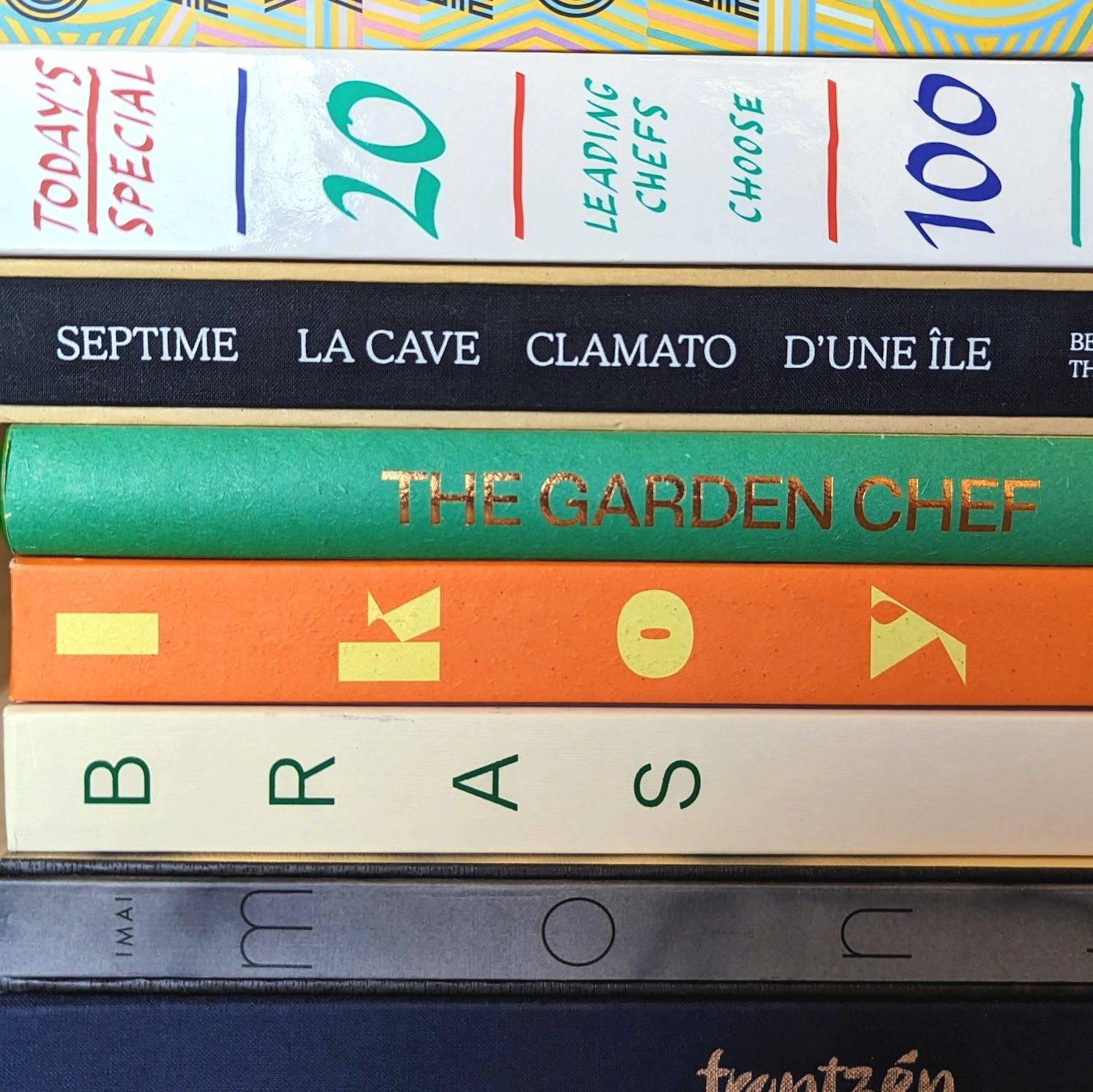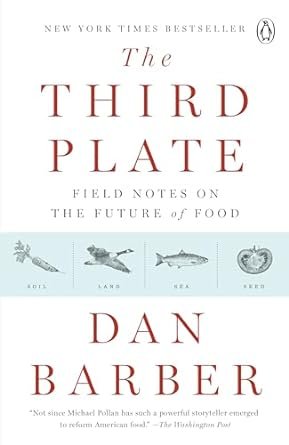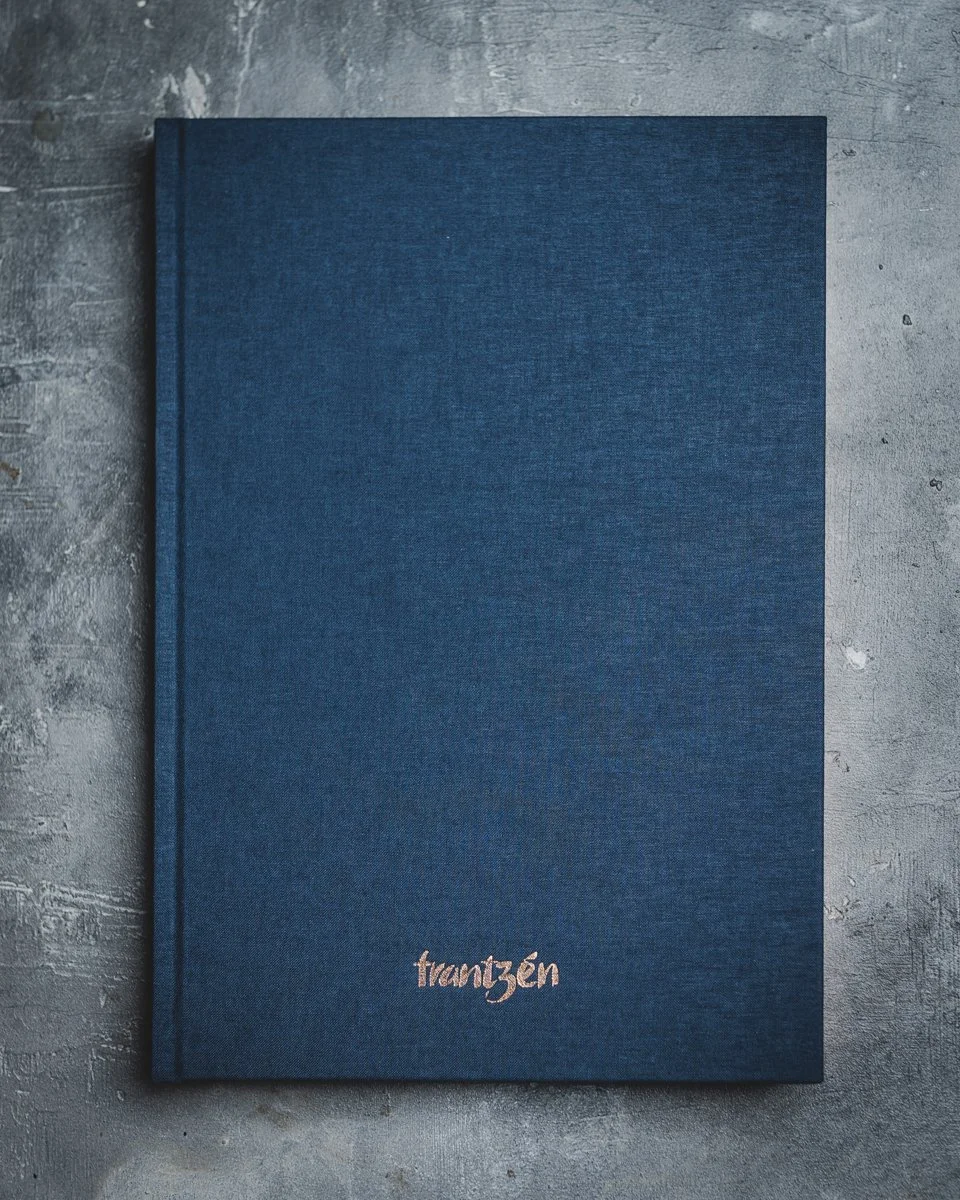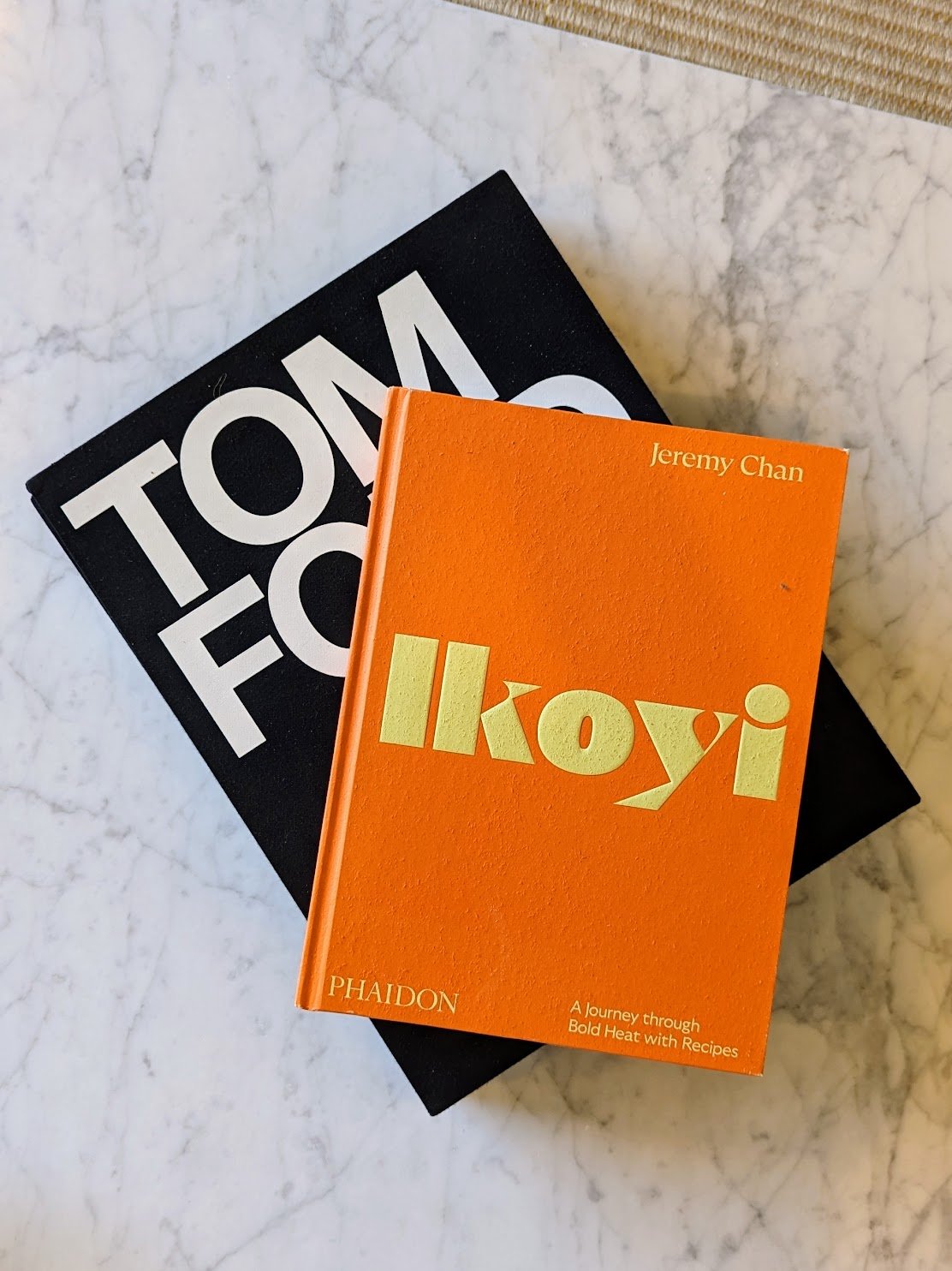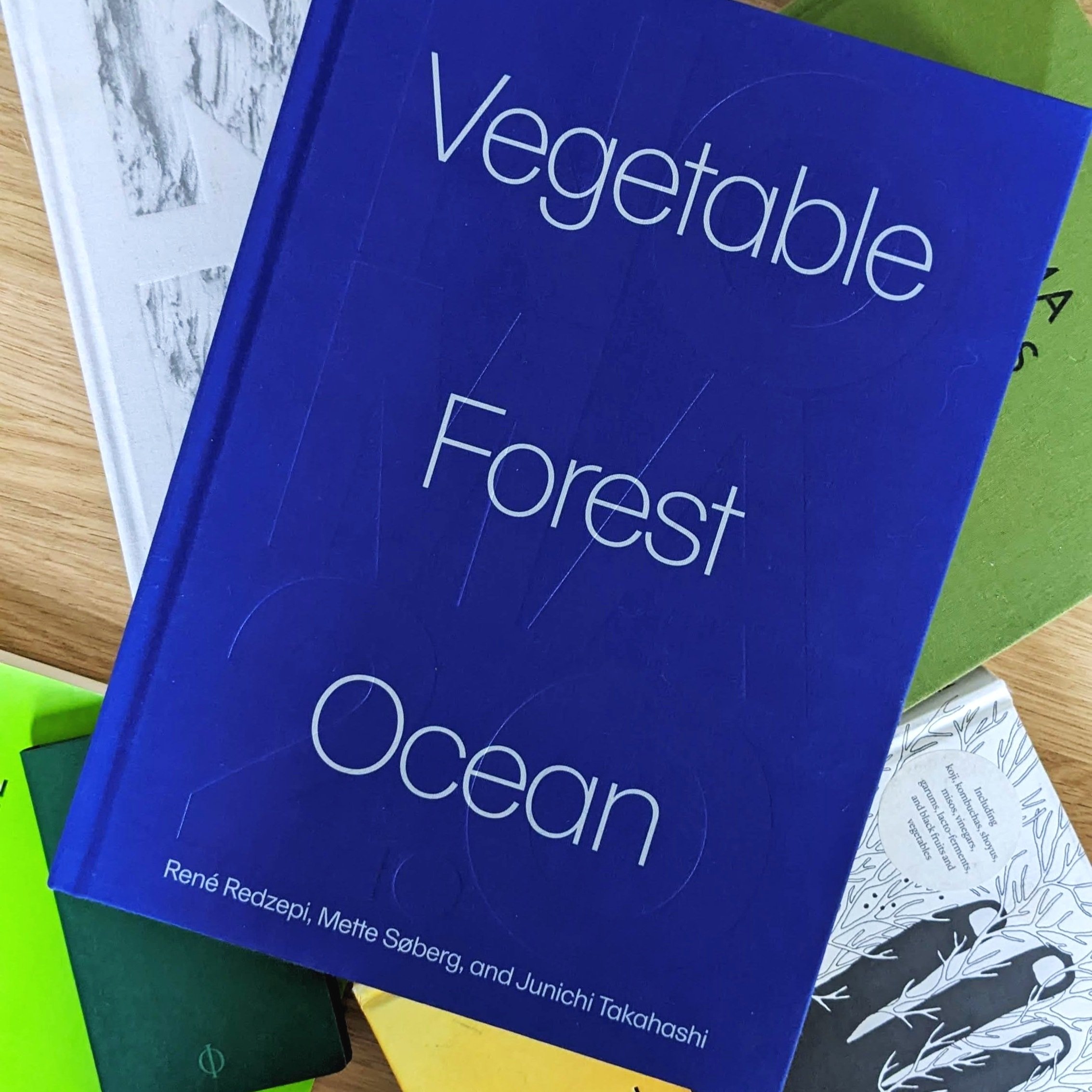THE BEST COOKBOOKS FOR AMBITIOUS HOME COOKS, 2024
My cookbook collection is too big for my apartment. Actually.
But when I joined fine dining restaurants with no fine dining experience, the lessons I learned from those cookbook were critical to my success.
If you’re the type of cook who’s looking for a challenge, who wants to serve restaurant-level dishes to blow away your guests, and who embraces creative techniques and results, these are the cookbooks for you.
This is an 2024 update to my last guide on next level cookbooks. A few recommendations remain the same because great cooking is timeless.
BEST COOKBOOKS for UPPING YOUR CREATIVITY
The Garden Chef
My home cooking is fully dependent on my herb garden — I grow herbs you can’t find in stores to surprise my guests with flavors they’ve never tasted. It’s a hack that far more home cooks should employ, and The Garden Chef is a perfect entry point.
Far from a how-to on gardening, The Garden Chef is a collection of recipes and musings from famous chefs that depend on their gardens. You’ll finish the book with a wishlist of herbs and inspiration to replicate the approach.
Why I recommend it:
Cookbooks with recipes from many chefs can help you to understand a topic more holistically; find the chef’s approach that most resonates with you and run with it.
One of the only cookbooks with a recipe from Kadeau, a fermentation and preservation-forward restaurant serving my favorite meal in Copenhagen.
Today’s Special
Today’s Special is perhaps the widest, most interesting collection of recipes I’ve ever seen: 20 leading chefs each choose 5 up-and-coming chefs to highlight, and each of those chefs share a handful of recipes. It’s like listening to a Greatest Hits album from 5 years into the future.
Why I recommend it:
Explore dozens of new techniques and flavor combinations you’d otherwise never come across.
Learn what makes the world’s best restaurants similar and different, then apply the learnings to your own food.
Noma Guide to Fermentation
The Noma Guide to Fermentation has changed my home cooking more than any book. For good reason — Noma influenced the fine-dining scene more than any restaurant in the last 20 years, and when Noma launched The Noma Guide, it was like they were opening a vault of secrets.
Why I recommend it:
Open your eyes to the world of fermentation to discover new sources of umami and acidity.
Learn how to apply Noma techniques to original recipes with local ingredients.
I wrote a post on which gear to get to make every recipe. Gift alongside the book!
The CREATIVE ACT: A WAY OF BEING
Not a cookbook, and practically not a book at all. In The Creative Act, Rick Rubin (a music producer who, while not a particularly skilled musician himself, has redefined rock and hip hop through his raw production talent) lays out a philosophy on the creative approach. The book, which is completely applicable to any art or industry, has the potential to totally change how you create new dishes.
Why I recommend it:
Understanding your creative approach can help you identify blindspots in your cooking
Short snippets to get you going, but with enough substance to make a lasting impact
Not just for cooking!
BEST COOKBOOKS for CHANGING YOUR MINDSET
The THIRD PLATE
I’ll be honest — I thought organic was largely bullshit until I read this book. In The Third Plate (which isn’t actually a cookbook), Dan Barber walks readers through what the history of food can tell us about its future. Regenerative farming, ethical foie gras, farmed fish — Barber walks you through why some buzzed-about topics aren’t all BS, and he does so by going straight to the source to learn from farmers and chefs.
It makes sense, Barber (head of Blue Hill at Stone Barns and former council member of President Obama), is one of the most thoughtful humans on the planet when it comes to food, and he maps out his thoughts elegantly.
Why I recommend it:
Make your appreciation of local and natural food an asset to your cooking.
Get onboard with the future of food, and do so with enthusiasm!
The Wok
The Wok is more than just a primer on woks — it’s an introduction to the art and science of stir-frying, deep frying, steaming, and braising told through an appreciation of great Asian cooking.
The Wok is written by J. Kenji Lopez Alt, perhaps the best recipe author of the internet era thanks to his approachable, evidence-based approach, so you can be sure that he’ll equip you with the tools to apply Wok-style cooking to any genre and technique.
Why I recommend it:
Make cheaper cuts of meat taste tender.
You don’t need a high-temp wok to do most of the recipes! Kenji’s got you.
HEAT
A New Yorker editor quits his job to work on the line. If you’re a home cook imagining what it’s like to become a chef in New York City, then there’s no more raw, honest, and hilarious take than Heat, a first-hand take from Bill Buford.
The payoff of reading Heat is Dirt, the sequel. Here Buford takes his cooking “hobby” even more seriously — moving his whole family to France to continue his cooking journey! Goals.
Why I recommend it:
Buford holds nothing back, so you can live vicariously through him as he makes the moves (and mistakes) you’re too afraid to make.
A great listen for audiobook fans — especially the second one which is read by the author.
BEST COOKBOOKS FOR HOSTING A DINNER PARY
THE FRANTZEN BOOK
The best single restaurant experience I’ve ever had was at Frantzen in Stockholm. From start to finish, the venue and menu are designed to set and break your expectations. And trust me — as home cooks — you will definitely exceed expectations if you serve a Frantzen dish for friends.
Recipes in The Frantzen Book take a lot of effort and require premium ingredients, and yet they’re still somewhat approachable for the home cook with patience and grit. It all pays off with your guests’ reaction.
Why I recommend it:
Serve your friends the ultimate indulgence.
Recipes are split into usable components, so you can easily take part of a recipe and simplify the rest.
All recipes are written in percentages, so you can scale everything to fit your dinner party size.
Unreasonable Hospitality
Written by Will Guidara, Unreasonable Hospitality isn’t a cookbook — it’s a way of approaching how you show up for others.
Guidara co-owned Eleven Madison Park (once deemed the #1 restaurant in the world) and was responsible for their innovative approach to hospitality. Apply his approach to your dinner parties and you will make a lasting impression.
Why I recommend it:
Dinner parties are the ultimate showcase for hospitality; with close relationships to all your guests, you can do at home what Guidara could never do at his restaurants.
Equally as valuable in a corporate or professional setting, it’s about strategic approaches for giving more and getting more in return.
CHICKEN AND CHARCOAL
Is it just me? Or are yakitori parties the best dinner parties ever? With yakitori, you can do cooking prep in advance and get interactive with your guests as you cook and teach them a thing or two.
Chicken and Charcoal is a highly approachable bible to yakitori from Matt Abergel, the chef behind Yardbird in Hong Kong, an authentic, edgy take on the Japanese staple.
Why I recommend it:
Quality yakitori grills have greatly decreased in price. I love mine.
Learning the ins-and-outs of chicken butchery and grilling makes you a better cook with all things knives and fire.
BEST COOKBOOKS FOR UNDERSTANDING FLAVOR
The Art of Flavor
Daniel Patterson (chef of 2 Michelin Star Coi in San Francisco) teams with an expert perfumer to identify patterns in how we understand flavor and scent. The book contains recipes designed to illustrate how flavor combinations work, but the book’s frameworks and principles for flavor and recipe development are what really shine.
Why I recommend it:
No other book has given me a vocabulary of flavor like this one. After reading this, I instantly felt like a better, more thoughtful cook.
Learn to taste better, create better, and even talk about food better.
On Food and Cooking
This book explains 95% of things you could ever want to know about food or cooking. To people that haven’t read this book, such a claim sounds impossible. I surely didn’t believe it until I got the book.
But it’s true — I was blown away by the level of detail but also the way that the book unites disparate topics in a cohesive narrative. It’s sort of like the Sapiens of cooking.
Why I recommend it:
Connect the dots in your cooking knowledge. The internet is simply missing this level of cooking expertise!
No need to read it all at once — it’s organized by ingredient and technique so you can reference what you need when you need it.
SUSHI CHEF: SUKIYABASHI JIRO
The product of in-depth interviews with Jiro Ono (the chef behind Jiro Dreams of Sushi), Sushi Chef is proof that obsession pays off.
Don’t read this book to become a sushi expert — read it to see what it means to dedicate your life to a single craft. Case in point: there are 27 pages on how tuna changes over the months of the year and how that should impact your approach to serving it. If that doesn’t inspire you to take care in your craft even a little bit more than you do today, then you might be lost cause!
Why I recommend it: Understanding the intricacies of a craft you never plan to master allows you to be a tourist of sorts — explore! then apply the approach on your home turf.
RELAE: A BOOK OF IDEAS
This cookbook details the first few years of Relae, a Michelin star restaurant in Copenhagen by Christian Puglisi. Christian Puglisi combines his knowledge from working at El Bulli and Noma with his Italian background and rare creativity to produce one-of-a-kind dishes.
The book is organized into three sections to help you understand the creative process behind Relae’s otherworldly meals: Ideas ( Puglisi’s thoughts on ingredients, parts of the world, cooking theories and techniques), dishes (the history behind each dish), and recipes.
I’ve learned countless techniques from this book — including how to be inspired by my failures.
Why I recommend it:
Understand the creative process behind one of the world’s most influential restaurants.
Apply the creative techniques to your own cooking.
Reuse the pistachio paste recipe time and time again!
BEST COOKBOOKS FOR YOUR COFFEE TABLE
Ikoyi
Stunning photos beneath a vibrant orange cover, Ikoyi is far more than just a coffee table book. Author Jeremy Chan is like no other chef out there — he was a Princeton grad working in finance before he decided to trade it all for recipe development.
I find Chan’s philosophies to be both inventive and practical and his writings to be like poetry. It’s no wonder his food tastes like a feast from another world — blown away by my visits there!
Why I recommend it:
Ikoyi is serving food that tastes like nowhere else on the planet.
Get familiar with a new world of spices and heat.
NOMA 2.0
Noma has outdone themselves with this book. I’ve written a whole post about why this is my favorite Noma cookbook, but it’s definitely the best Noma book for a coffee table.
Why? First, massive photos chronicle the first few years of Noma’s new venue, and they are much higher quality than previous Noma cookbooks. Second, each dish has an artful recipe explanation rather than a detailed recipe, making the book far more fun for your guests to explore.
Why I recommend it:
Access detailed versions of each recipes in online PDFs.
Gastronomique in the back is the best
Bold blue cover will elevate your space.
NORDIC BY NATURE
A truly breathtaking selection of dish and nature photos that still manage to be outdone by the killer recipes in its pages. Nordic by Nature showcases the kings of New Nordic cuisine right when New Nordic cuisine was the culinary king of the fine dining world.
Why I recommend it:
Transport your coffee table to the lush landscapes of Scandinavia.
Cookbooks with recipes from many chefs can help you to understand a topic more holistically; find the chef’s approach that most resonates with you and run with it.
